ড. তানসীর আলি বর্তমানে আমেরিকান ইন্টারন্যাশনাল ইউনিভার্সিটি – বাংলাদেশ (AIUB)-এ শিক্ষক হিসেবে কর্মরত আছেন। তিনি পদার্থ বিজ্ঞান ও Applied Physics-এ শিক্ষাজীবন শুরু করেন এবং পরবর্তীতে North South University-তে Electrical and Telecommunication Engineering (ETE) বিভাগ থেকে স্নাতক সম্পন্ন করেন। উচ্চতর ডিগ্রীর জন্য যুক্তরাজ্যের Robert Gordon University, Aberdeen-এ MSC in Communication Engineering সম্পন্ন করেন এবং এরপর Greenwich University থেকে PhD শেষ করেন।
তার গবেষণা মূলত Amplifier Linearisation, Nanoelectronics, Wireless Body Area Network (WBAN), High Energy Electronics এবং Internet of Things-এর ক্ষেত্রে কেন্দ্রীভূত। তিনি বিশেষভাবে কম ত্রুটিপূর্ণ CMOS চিপ ডিজাইন এবং WBAN-এর antenna design নিয়ে কাজ করেছেন। দেশে ফিরে AIUB-এ যোগদানের পর Capstone Project-এর মাধ্যমে শিক্ষার্থীদের বাস্তব সমস্যা সমাধানে সহায়তা করছেন। এছাড়াও তিনি মস্তিষ্কে মোবাইল ফোনের রেডিয়েশনের প্রভাব নিয়ে গবেষণা করেছেন।
💬 প্রশ্নোত্তর পর্ব:
প্রশ্ন: আপনার সম্বন্ধে কিছু বলুন।
উত্তর: আমি বর্তমানে AIUB-এ কর্মরত আছি। আমার শিক্ষা জীবন শুরু হয় হারমান মেইনার স্কুল ও কলেজ থেকে, তারপর নটর ডেম কলেজ থেকে HSC পাশ করি। ঢাকা বিশ্ববিদ্যালয়ে পদার্থ বিজ্ঞান বিভাগে ভর্তি হই, কিন্তু Applied Physics পছন্দের কারণে North South University-এ ETE কোর্সে ভর্তি হই এবং ২০০৭ সালে স্নাতক সম্পন্ন করি। এরপর যুক্তরাজ্যে MSC এবং PhD শেষ করে ২০১৩ সালে দেশে ফিরে আসি। আমার শিক্ষা জীবনের সাফল্যের জন্য আমি আমার পরিবার ও জীবন সাথীর কাছে কৃতজ্ঞ।
প্রশ্ন: যুক্তরাজ্যে আপনার গবেষণার অভিজ্ঞতা বলুন।
উত্তর: MSC পড়ার সময় আমাকে দুটি চাকরি করতে হতো। সকালে পড়াশোনা, এরপর প্রথম কাজ, ক্লাস শেষে দ্বিতীয় কাজ। কঠোর রুটিন বজায় রাখার ফলে MSC-তে Distinguished First Class অর্জন করি। এরপর Greenwich University থেকে PhD করার সুযোগ পাই।
প্রশ্ন: পিএইচডি-তে গবেষণার বিষয় কি ছিল?
উত্তর: আমার গবেষণা Amplifier Linearisation নিয়ে ছিল, যেটি power amplifier-এর সিগন্যালকে কম ত্রুটিপূর্ণ করার উপর কেন্দ্রিত। এই গবেষণার জন্য CMOS চিপ তৈরি করি এবং Nanoelectronics ও Quantum Physics থেকে নতুন পদ্ধতি উদ্ভাবন করি। এর ফলে ন্যূনতম ত্রুটি সম্পন্ন চিপ তৈরি সম্ভব হয়।
প্রশ্ন: Wireless Body Area Network (WBAN) সম্পর্কে বলুন।
উত্তর: WBAN শরীরের আশেপাশে কম দূরত্বে তারবিহীন যোগাযোগ স্থাপন করার প্রযুক্তি। আমরা লো পাওয়ার ও হাই ব্যান্ডউইথের antenna design করেছি। এর অ্যাপ্লিকেশন যেমন ব্লুটুথ হেডফোন ও স্মার্ট ঘড়ি। মূল বিষয় হল মানুষের শরীরের ক্ষতি কম রাখা।
প্রশ্ন: মস্তিষ্কে মোবাইল ফোনের রেডিয়েশন নিয়ে গবেষণার সারমর্ম কী?
উত্তর: মোবাইল ফোন ব্যবহার করলে কথা বলার সময় রেডিয়েশন হয়, যার ফলে মস্তিষ্কের তাপমাত্রা এক মিনিটের মধ্যে দুই ডিগ্রি পর্যন্ত বেড়ে যায়। বেশি সময় ফোনে কথা বললে ক্ষতির পরিমাণ বৃদ্ধি পায়।
প্রশ্ন: Capstone Project সম্বন্ধে বলুন।
উত্তর: Capstone Project ফাইনাল ইয়ার শিক্ষার্থীদের নিয়ে বাস্তব সমস্যার সমাধান খুঁজে বের করার প্রক্রিয়া। এটি শিক্ষার্থীদের গবেষণা ও উদ্ভাবনী দক্ষতা বৃদ্ধি করে।
প্রশ্ন: বর্তমানে কি ধরনের গবেষণা করছেন?
উত্তর: শিক্ষকতার পাশাপাশি Nanoelectronics, Nuclear Power, High Energy Electronics, Automation, Internet of Things ইত্যাদি বিষয়ে গবেষণা চালাচ্ছি।
প্রশ্ন: তরুণ শিক্ষার্থীদের জন্য আপনার উপদেশ কী?
উত্তর: বিজ্ঞান মানব সভ্যতার উন্নয়নের জন্য গুরুত্বপূর্ণ। গবেষণা ও ইঞ্জিনিয়ারিং সমস্যা সমাধানে গুরুত্বপূর্ণ ভূমিকা রাখতে পারে। জীবন ছোট, তাই মানব সমাজের উন্নয়নে অবদান রেখে তাৎপর্যপূর্ণ করা সম্ভব।
ড. তানসীর আলির গবেষণা Nanoelectronics, WBAN এবং High Energy Electronics-এর ক্ষেত্রে নতুন দিগন্ত উন্মোচন করেছে। তিনি তরুণ বিজ্ঞানীদের জন্য গবেষণা ও উদ্ভাবনের গুরুত্ব তুলে ধরেছেন। বিজ্ঞানী অর্গ টিম তাঁর এই গবেষণার সাফল্যের জন্য শুভকামনা জানাচ্ছে। তাঁর কাজ বাংলাদেশের শিক্ষার্থী ও গবেষকদের অনুপ্রেরণা যোগাক—এই কামনা।
Exploring New Frontiers in Science: Dr. Tansir Ali’s Research and Experience
Dr. Tansir Ali is currently a faculty member at the American International University – Bangladesh (AIUB). He began his academic journey in physics and applied physics and completed his undergraduate degree in Electrical and Telecommunication Engineering (ETE) at North South University. He earned his MSc in Communication Engineering from Robert Gordon University, Aberdeen, UK, followed by a PhD from Greenwich University.
His research focuses on amplifier linearisation, nanoelectronics, Wireless Body Area Network (WBAN), high-energy electronics, and the Internet of Things. Dr. Ali has designed low-error CMOS chips and contributed to antenna designs for WBAN applications. After returning to Bangladesh, he has been leading Capstone Projects to help students solve real-world engineering problems. He has also conducted studies on the effects of mobile phone radiation on the human brain.
💬 Q&A Section:
Question: Please tell us about yourself.
Answer: I am currently working at AIUB. My education started at Harman Meiners School & College, then I completed HSC from Notre Dame College. I joined the Department of Physics at Dhaka University but later chose Applied Physics and completed my undergraduate in ETE from North South University in 2007. I pursued higher studies in the UK, completing MSc and PhD, and returned to Bangladesh in 2013. I am grateful to my family for their support throughout my academic journey.
Question: Can you share your experience studying in the UK?
Answer: While pursuing my MSc, I had to work two jobs to support my living and tuition. I maintained a strict routine—study in the morning, first job, classes, then second job—but I never compromised my learning. As a result, I earned a Distinguished First Class in MSc. Later, I received a full scholarship to pursue a PhD at Greenwich University.
Question: What was your PhD research about?
Answer: My research focused on amplifier linearisation, aiming to reduce signal distortion in power amplifiers. I designed CMOS chips and explored new methods using nanoelectronics and quantum physics. Ultimately, I developed low-error chips, which required extensive learning of software tools and even travel to China for experiments.
Question: Tell us about Wireless Body Area Network (WBAN).
Answer: WBAN enables short-range wireless communication around the human body. We designed low-power, high-bandwidth antennas and published our findings. Applications include Bluetooth headphones and smartwatches. The main focus is to ensure minimal harm to the human body.
Question: Can you summarize your research on mobile phone radiation on the brain?
Answer: We found that during phone calls, radiation increases the brain’s temperature by up to two degrees within just one minute. Prolonged usage can lead to greater exposure and potential harm.
Question: Please explain the Capstone Project.
Answer: Capstone Projects involve final-year students conducting applied research to solve real-world problems that are commercially viable. These projects give students practical experience in tackling real-life challenges.
Question: What research are you currently pursuing?
Answer: Alongside teaching, I am working on nanoelectronics, nuclear power, high-energy electronics, automation, and the Internet of Things.
Question: What advice do you have for young students interested in science?
Answer: Science is crucial for human civilization. Research and engineering can solve real-world problems and improve lives. Life is short, so contributing to societal progress makes it meaningful.
Dr. Tansir Ali’s work in nanoelectronics, WBAN, and high-energy electronics opens new frontiers in applied science. His research and guidance offer inspiration for young scientists in Bangladesh. The biggani.org team wishes him continued success and hopes his work motivates future researchers and students.
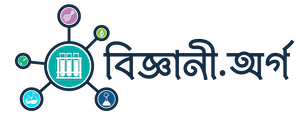
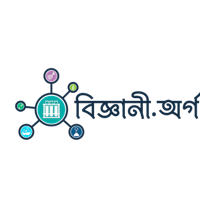
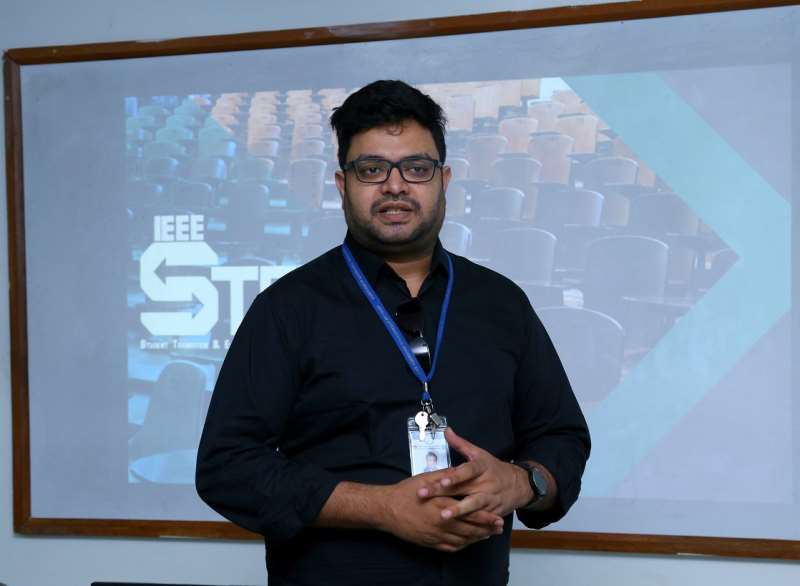

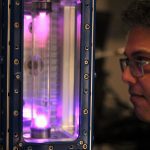
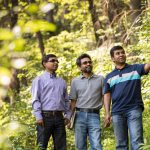

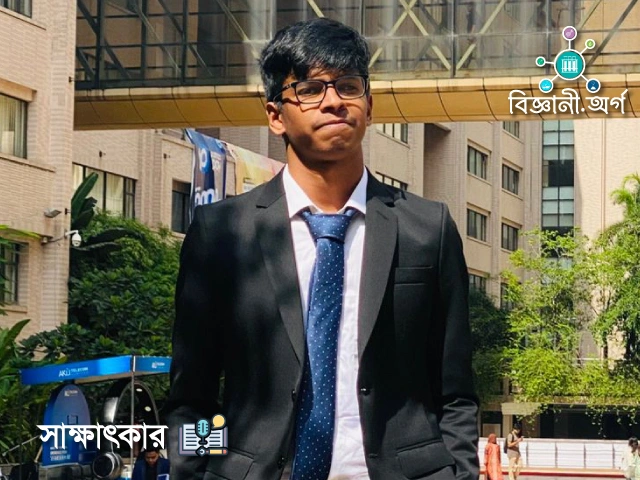
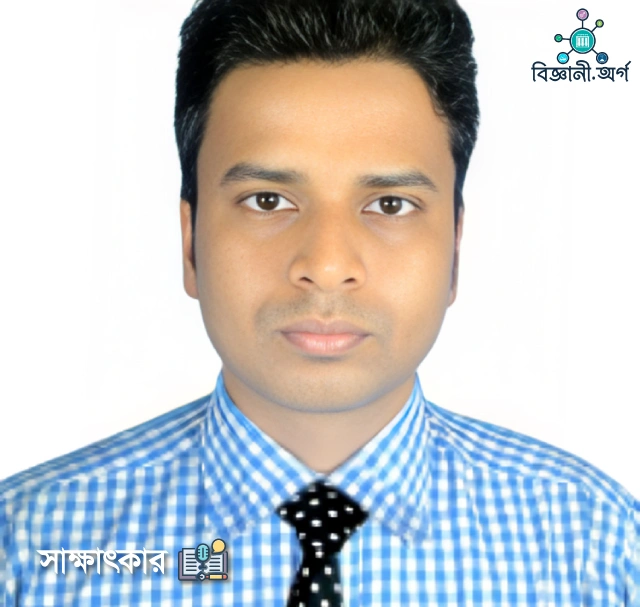
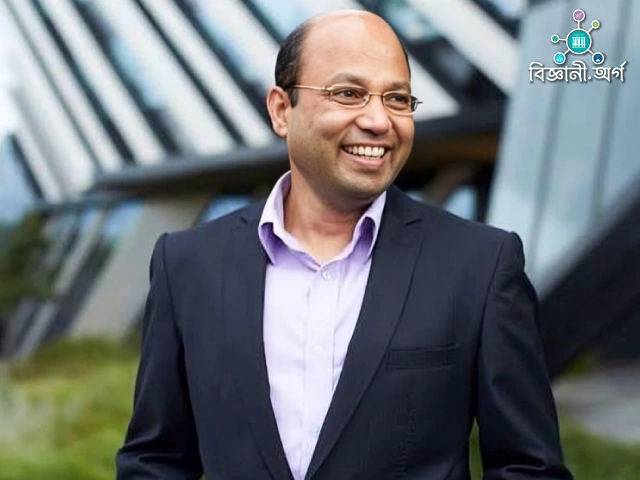
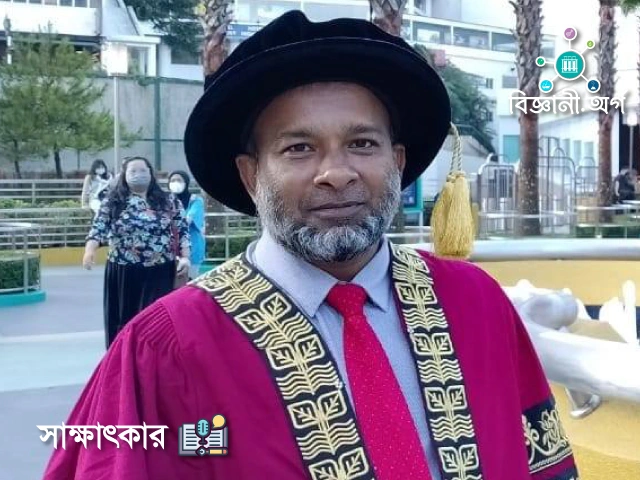
Leave a comment